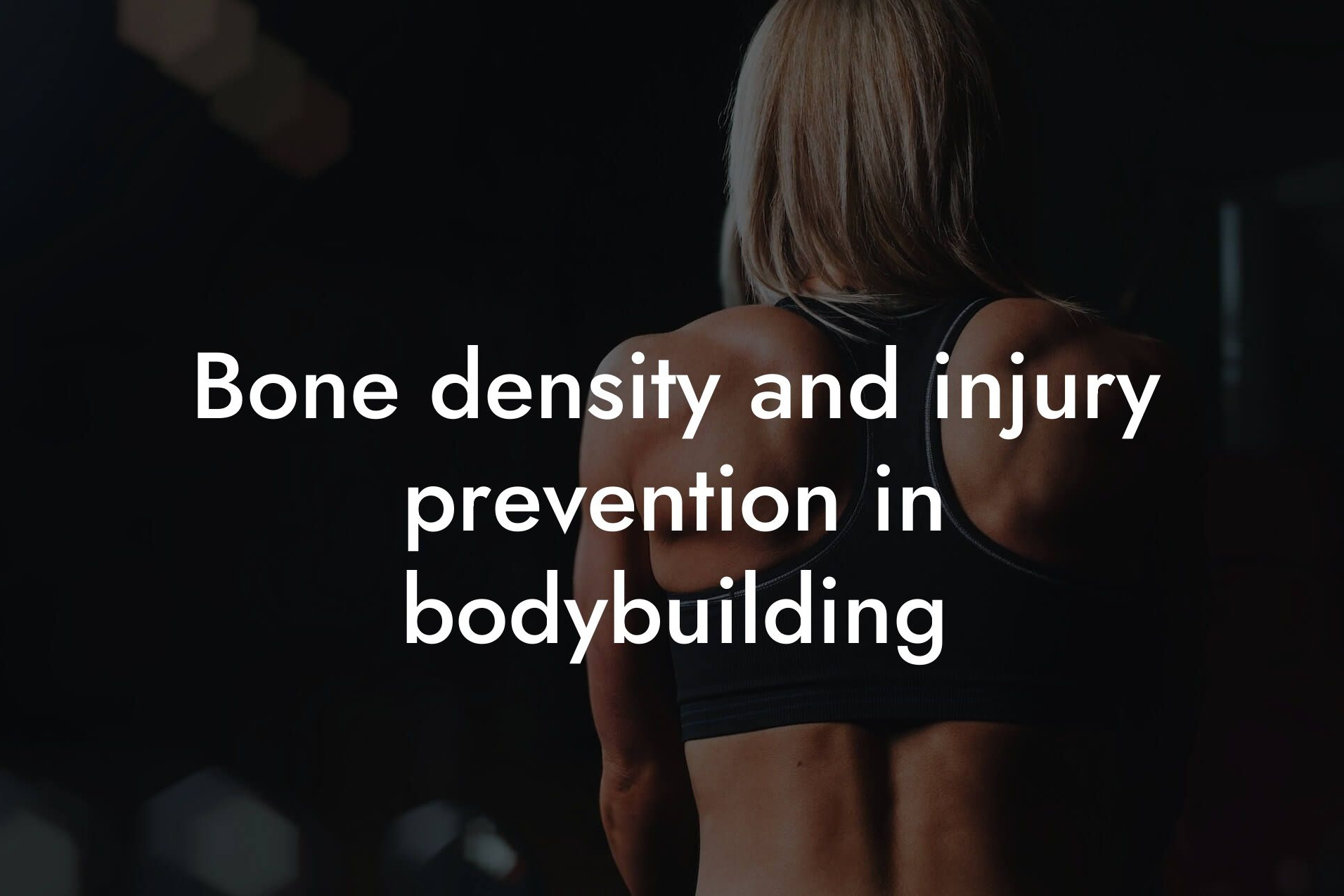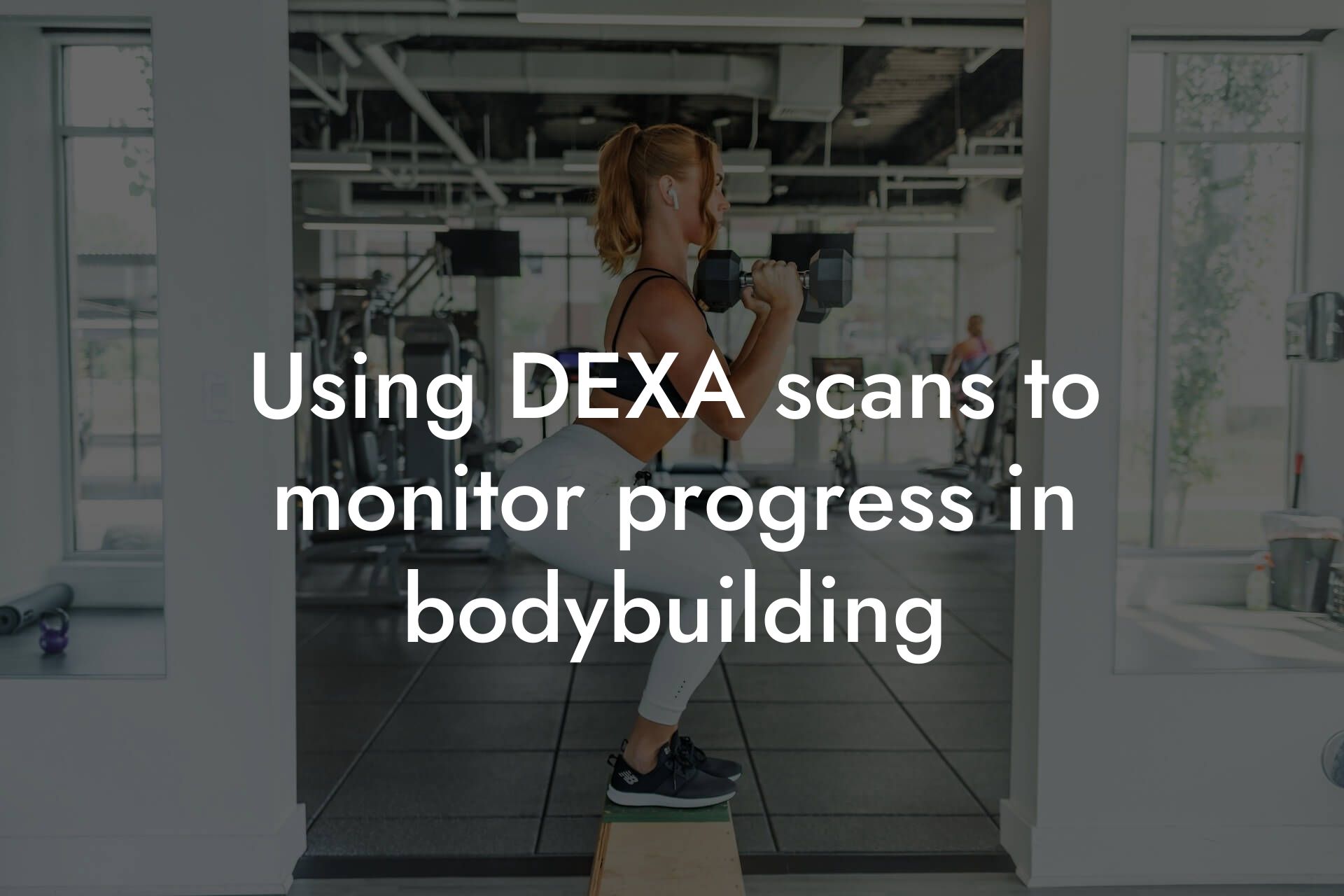As a high-earning professional, you understand the importance of maintaining a strong physical appearance to complement your professional success. At Tano Performance Group, we recognize that achieving your ideal physique requires a comprehensive approach, including a well-planned nutrition strategy. In this article, we will delve into the specifics of nutrition strategies for muscle gain and fat loss in bodybuilding, providing you with the knowledge you need to take your physique to the next level.
Table of Contents
Understanding Macronutrients
Before we dive into specific nutrition strategies, it's essential to understand the three primary macronutrients: protein, carbohydrates, and fats. Each macronutrient plays a unique role in supporting muscle growth and fat loss.
Protein is the building block of muscle tissue, providing the necessary amino acids for muscle growth and repair. Aim to consume 1.6-2.2 grams of protein per kilogram of body weight daily, spread across 3-5 main meals and 2-3 snacks.
Carbohydrates serve as a primary energy source for workouts and daily activities. Focus on complex carbohydrates such as whole grains, fruits, and vegetables, aiming for 2-3 grams per kilogram of body weight daily.
Fats are essential for hormone production and overall health. Include sources of healthy fats like nuts, seeds, avocados, and olive oil in your diet, aiming for 0.5-1 gram per kilogram of body weight daily.
Caloric Intake and Macronutrient Ratios
To achieve muscle gain or fat loss, you must understand how to manipulate your caloric intake and macronutrient ratios. For muscle gain, aim for a caloric surplus of 250-500 calories daily, with a macronutrient ratio of 25-30% protein, 40-50% carbohydrates, and 25-30% fats.
For fat loss, aim for a caloric deficit of 250-500 calories daily, with a macronutrient ratio of 30-35% protein, 30-40% carbohydrates, and 30-35% fats. Adjust your ratios based on your individual needs and progress.
Meal Frequency and Timing
Meal frequency and timing play a crucial role in supporting muscle growth and fat loss. Aim for 5-6 main meals and 2-3 snacks in between, spaced out every 2-3 hours. This will help maintain a positive nitrogen balance, supporting muscle growth and repair.
Post-workout nutrition is also critical. Consume a meal or snack with a mix of carbohydrates and protein within 30-60 minutes after your workout to aid in muscle recovery and growth.
Hydration and Electrolytes
Adequate hydration is essential for muscle growth and overall health. Aim to drink at least 3-4 liters of water daily, and make sure to consume electrolyte-rich foods or supplements to maintain proper electrolyte balance.
Supplementation
While a well-planned diet is essential, supplementation can help fill in nutritional gaps and support muscle growth and fat loss. Consider adding the following supplements to your regimen:
Protein powder: A convenient way to increase protein intake, especially post-workout.
Creatine: Increases muscle strength and endurance, allowing for more intense workouts.
Branched-Chain Amino Acids (BCAAs): Reduces muscle soreness and supports muscle growth.
Fish oil: Supports overall health and hormone production.
Progressive Overload and Training
A well-planned nutrition strategy is only half the battle. To achieve muscle gain and fat loss, you must also incorporate a progressive overload training program. This involves gradually increasing weight, reps, or sets over time to challenge your muscles and promote growth.
Focus on compound exercises like squats, deadlifts, and bench press, and include a mix of hypertrophy and strength training to support muscle growth and fat loss.
Monitoring Progress and Adjusting Your Strategy
Regularly monitoring your progress is crucial to achieving your physique goals. Use a combination of metrics, including:
Body fat percentage: Track your progress using a DEXA scan or skinfold measurements.
Weight and body measurements: Monitor changes in weight, waist circumference, and other body measurements.
Progress photos: Take regular progress photos to track visual changes in your physique.
Adjust your nutrition strategy and training program based on your progress, making adjustments as needed to achieve your goals.
Achieving muscle gain and fat loss in bodybuilding requires a comprehensive approach, including a well-planned nutrition strategy, progressive overload training, and regular progress monitoring. By following the guidelines outlined in this article, you'll be well on your way to achieving your physique goals and taking your business to the next level. Remember to stay patient, consistent, and adaptable, and don't hesitate to seek guidance from a qualified healthcare professional or registered dietitian if needed.
Frequently Asked Questions
What is the ideal macronutrient ratio for muscle gain and fat loss in bodybuilding?
When it comes to muscle gain and fat loss in bodybuilding, the ideal macronutrient ratio is a topic of ongoing debate. However, a general guideline is to aim for a ratio of 25-30% protein, 40-50% carbohydrates, and 25-30% fat. This ratio provides the necessary building blocks for muscle growth and repair while also supporting fat loss. However, it's essential to note that individual needs may vary, and it's best to consult with a registered dietitian or nutritionist to determine the optimal ratio for your specific goals and needs.
How many calories do I need to consume daily to gain muscle and lose fat?
The number of calories you need to consume daily to gain muscle and lose fat depends on several factors, including your age, sex, weight, height, and activity level. A general guideline is to aim for a caloric surplus of 250-500 calories above your maintenance level to support muscle growth and a caloric deficit of 500-1000 calories below your maintenance level to support fat loss. However, this is a broad estimate, and it's best to consult with a registered dietitian or nutritionist to determine your individual caloric needs.
What is the importance of protein in muscle gain and fat loss?
Protein is essential for muscle gain and fat loss in bodybuilding. It provides the necessary building blocks for muscle growth and repair, and it also helps to preserve muscle mass during periods of caloric restriction. Aim to consume 1.6-2.2 grams of protein per kilogram of body weight daily, spread out over 3-5 main meals and 2-3 snacks.
What are the best sources of protein for muscle gain and fat loss?
The best sources of protein for muscle gain and fat loss include lean meats such as chicken, turkey, and fish, as well as plant-based options like beans, lentils, and tofu. Additionally, protein supplements like whey protein and casein protein can be helpful in meeting your daily protein needs.
Can I gain muscle and lose fat at the same time?
Yes, it is possible to gain muscle and lose fat at the same time, but it requires careful planning and attention to your nutrition and training. This process is known as body recomposition, and it involves creating a caloric surplus to support muscle growth while also creating a caloric deficit to support fat loss. However, it's essential to note that this process can be challenging and may require patience and consistency.
How often should I eat to support muscle gain and fat loss?
To support muscle gain and fat loss, it's recommended to eat 5-6 meals per day, spaced out every 2-3 hours. This includes 3 main meals and 2-3 snacks in between. Eating frequently helps to keep your muscles fueled and supports muscle growth and repair.
What is the role of carbohydrates in muscle gain and fat loss?
Carbohydrates provide energy for your workouts and help to support muscle growth and repair. They are also important for replenishing glycogen stores, which can become depleted during intense training. Aim to consume complex carbohydrates such as whole grains, fruits, and vegetables, and avoid simple carbohydrates like sugary drinks and refined grains.
What is the role of healthy fats in muscle gain and fat loss?
Healthy fats are essential for hormone production and can help to support muscle growth and repair. They are also important for absorbing vitamins and minerals. Aim to consume healthy fats like avocado, nuts, and seeds, and avoid unhealthy fats like trans fats and saturated fats.
Can I use supplements to support muscle gain and fat loss?
Yes, supplements can be helpful in supporting muscle gain and fat loss, but they should not replace a healthy diet and regular training. Some popular supplements for bodybuilding include protein powder, creatine, and branched-chain amino acids (BCAAs). However, it's essential to consult with a healthcare professional or registered dietitian before adding any new supplements to your regimen.
How much water should I drink daily to support muscle gain and fat loss?
Adequate hydration is essential for muscle gain and fat loss. Aim to drink at least 8-10 glasses of water per day, and make sure to drink water before, during, and after your workouts.
What is the importance of rest and recovery in muscle gain and fat loss?
Rest and recovery are critical components of muscle gain and fat loss. During rest and recovery, your muscles repair and rebuild, which is essential for muscle growth and repair. Aim to get 7-9 hours of sleep per night and take rest days as needed.
How can I track my progress and stay motivated?
Tracking your progress and staying motivated are essential for achieving your bodybuilding goals. Take progress photos, measurements, and track your workouts and nutrition. Share your goals with a friend or family member and consider working with a personal trainer or coach for added motivation and accountability.
What are the common mistakes to avoid when trying to gain muscle and lose fat?
Common mistakes to avoid when trying to gain muscle and lose fat include not eating enough protein, not getting enough rest and recovery, and not creating a caloric surplus or deficit. Additionally, avoid overtraining, which can lead to burnout and injury.
How long does it take to see results from a muscle gain and fat loss program?
The amount of time it takes to see results from a muscle gain and fat loss program varies depending on individual factors such as starting point, consistency, and patience. However, with a well-planned program, you can expect to see noticeable results in 6-12 weeks.
Can I gain muscle and lose fat without weights or resistance training?
While weights and resistance training are effective for building muscle, it is possible to gain muscle and lose fat without them. Bodyweight exercises, cardio, and high-intensity interval training (HIIT) can be effective alternatives. However, it's essential to note that weights and resistance training are often more effective for building muscle mass.
What is the importance of meal prep and planning in muscle gain and fat loss?
Meal prep and planning are essential for muscle gain and fat loss. They help you stay on track with your nutrition, ensure you're meeting your macronutrient needs, and save time and money. Aim to meal prep at least 3-4 times per week and plan your meals out in advance.
Can I gain muscle and lose fat with a vegan or vegetarian diet?
Yes, it is possible to gain muscle and lose fat with a vegan or vegetarian diet. However, it requires careful planning to ensure you're meeting your protein and nutrient needs. Consult with a registered dietitian or nutritionist to develop a personalized meal plan.
What is the role of stress management in muscle gain and fat loss?
Stress management is critical for muscle gain and fat loss. Chronic stress can lead to muscle breakdown and fat gain. Engage in stress-reducing activities like yoga, meditation, and deep breathing exercises to help manage stress.
How can I stay accountable and motivated on my muscle gain and fat loss journey?
Staying accountable and motivated is essential for achieving your bodybuilding goals. Share your goals with a friend or family member, join a fitness community, and consider working with a personal trainer or coach for added motivation and accountability.
What are the common myths and misconceptions about muscle gain and fat loss?
Common myths and misconceptions about muscle gain and fat loss include the idea that you need to spend hours in the gym, that you need to cut out entire food groups, and that you need to take certain supplements to see results. It's essential to separate fact from fiction and consult with a registered dietitian or nutritionist to develop a personalized plan.
How can I maintain my muscle gain and fat loss results over time?
Maintaining your muscle gain and fat loss results over time requires consistency and patience. Continue to challenge yourself in the gym, adjust your nutrition as needed, and stay committed to your goals. It's also essential to listen to your body and take rest days as needed.
What are the benefits of working with a personal trainer or coach for muscle gain and fat loss?
Working with a personal trainer or coach can be beneficial for muscle gain and fat loss. They can help you develop a personalized training and nutrition plan, provide accountability and motivation, and help you overcome plateaus and challenges.
Here are some related articles you might love...
- Bone density and injury prevention in bodybuilding
- Using DEXA scans to monitor progress in bodybuilding
- The role of body composition in bodybuilding success
- The importance of muscle symmetry in bodybuilding
- Recovery strategies for amateur bodybuilders
- Reducing body fat for competition in bodybuilding
- Strength training programs for amateur bodybuilders
- Off-season bulking and cutting cycles for bodybuilders
- How to optimize muscle growth with proper nutrition
Zak Faulkner
Zak Faulkner is a leading authority in the realm of physical health and body composition analysis, with over 15 years of experience helping professionals optimise their fitness and well-being. As one the experts behind Tano Performance Group, Zak has dedicated his career to providing in-depth, science-backed insights that empower clients to elevate their physical performance and overall health.
With extensive knowledge of DEXA technology, Zak specializes in delivering comprehensive body assessments that offer precise data on body fat, muscle mass, bone density, and overall physique. His expertise enables individuals to make informed decisions and achieve their fitness goals with accuracy and confidence. Zak’s approach is rooted in a deep understanding of human physiology, combined with a passion for helping clients unlock their full potential through personalised strategies.
Over the years, Zak has earned a reputation for his commitment to excellence, precision, and client-focused service. His guidance is trusted by top professionals who demand the best when it comes to their health. Whether advising on fitness programs, nutritional strategies, or long-term wellness plans, Zak Faulkner’s insights are a valuable resource for anyone serious about taking their health and fitness to the next level.
At Tano Performance Group, Zak continues to lead our Content Team revolutionising how professionals approach their physical health, offering unparalleled expertise that drives real results.




